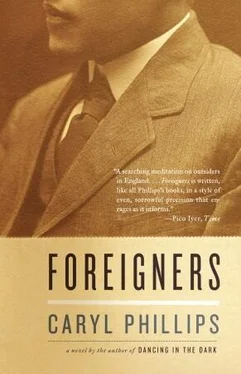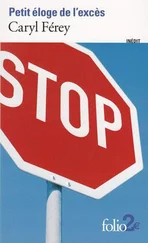George Middleton's biggest fear was that the alluring sights and sounds of New York City would prove an irresistible distraction for his fighter, for after all Manhattan was a world away from the drab, run-down, post-war East Midlands. Initially, Turpin seemed to be handling things with level-headed maturity, fielding journalists' questions and saying all the right things about the training facilities and his American sparring partners. However, as the fight drew closer things began to change. When they had initially checked into the Hotel Edison, the Turpin party had been greeted by a high society coloured lady who seemed to specialise in facilitating negro celebrities and making them feel at home. She informed George Middleton that the following morning there would be a reception in Harlem with food and entertainment where the negro 'smart set' would like to meet Randy. Although George Middleton cared little for such distractions, and would have preferred his fighter to skip the appointment, the Turpin brothers and, more importantly, Jack Solomons, were keen to oblige. Solomons feared the negative publicity if it ever leaked out that Turpin had snubbed coloured society, while the Turpin brothers were simply curious to see how coloured Americans lived. The following morning they arrived at the grand Harlem brownstone to discover that, even at this early hour, a party was already in full swing. The society host was keen to introduce the world champion to everybody present for, after all, he was the guest of honour, but she seemed particularly keen that he should make the acquaintance of a strikingly attractive young coloured woman in her early twenties called Adele Daniels, who, according to the hostess, was particularly excited to meet the world champion. Dick Turpin looked on and mentioned to George Middleton how attractive the young woman was, but Middleton's reply neatly summed up his concerns. 'A bit too good-looking,' was all he said. During the course of the next few days, Turpin appeared to be focused and the move to the Catskills took place without incident. However, George Middleton's concerns appeared to be well founded when Miss Adele Daniels began to appear whenever his fighter made a public appearance, and then, much to Middleton's consternation, Turpin began to leave Grossinger's and accompany her on private shopping trips when he had finished his daily training sessions.
On the evening of 10 September, 1951, less than three weeks after Turpin had stepped off the Queen Mary , hostilities with Sugar Ray Robinson began anew. After the first fight in London, Robinson had candidly declared, 'You were real good. I have no alibis. I was beaten by a better man,' but Robinson had absolutely no intention of allowing this to happen again. Having been bullied and outmuscled in London, Robinson weighed in 3 lb heavier for this fight and was determined to master the Englishman's strength and awkward crouching style. He remembered Turpin as being 'built like a heavyweight', and he never understood how a mere 160 lb were packed into his body. 'He should have weighed 190,' said Robinson. This time Robinson was prepared for Turpin's 'ruffian' tactics and, like the 61,370 people packed into Harlem's Polo Grounds, he was convinced that he would recapture the world title that he had 'accidentally' relinquished at the end of his gruelling European tour. His confidence was reflected in the bookmaking which, despite his being the challenger, made him a heavy favourite. As referee Ruby Goldstein signalled the fifteen-round championship bout to begin it soon became clear that, although Turpin was moving well, Robinson was now in first-class condition. His punching was crisp and his attention was fully focused on the task at hand. As the rounds unfolded it was apparent to George Middleton and the champion's brothers that Turpin's work rate was not what it had been in London, for his tempo kept dropping and he was occasionally taking breaks on the ropes and simply bobbing and weaving to avoid Robinson's precise punching. An early vicious left hook by Robinson had shaken Turpin to his boots and, unlike the fight in London where Turpin had continually pressed the attack, he was spending the greater part of this fight covering up and counterpunching.
As the fight moved into the tenth round, the bout remained even on the referee's scorecard with four rounds for each man, and one round drawn, but the partisan crowd were now beginning to show signs of worry for it was clear that this Limey's victory had been no fluke. Turpin was a hell of a fighter, and the crowd soon received further proof of this fact when midway through the tenth round a swinging right from Turpin caused a cut over Robinson's left eye that began to gush blood at such a rate that it seemed inevitable that the fight would soon be stopped and Turpin would retain his title. Sensing his chance of regaining the world crown slipping away, Robinson cut loose into Turpin's body with hard punches and then followed up with right and left hooks to the head. Instead of backing away and defending himself, Turpin unwisely tried to meet fire with fire and was caught by a swinging right cross which sent him spinning to the canvas. The crowd roared and the referee began a count which Turpin could clearly hear. He rose at seven and shook his head as he tried to regain his senses, but he was immediately pinned back against the ropes by another ferocious assault by Robinson, who slashed at a sagging opponent who was suddenly proving to be an easy target. Normally a referee might have allowed the fight to continue to the bell, thereby giving the champion time to have a breather and come out fresh for another round, but on this occasion — Robinson having hit Turpin thirty-one times in just twenty-five seconds — Goldstein waved his hands in the air and stopped the fight with a mere seven seconds of the round remaining. The ferocious baying of the Polo Grounds crowd, and the referee's awareness of the recent death in the ring of a fighter named Jose Flores, probably encouraged Goldstein to draw proceedings to a halt. Randolph Turpin's reign as world middleweight champion was over; it had lasted just sixty-four days.
After the fight an unhappy Turpin claimed, 'He should not have stopped it. With only seven seconds to go I was perfectly keen.' It is certainly possible that a revived Turpin might have emerged for the eleventh round and opened up more damage on Robinson's badly cut eye, forcing the referee to stop the fight, but the referee had made his decision. Randolph Turpin was no longer champion of the world, and Jack Solomons began to immediately negotiate for a deciding fight, insisting that this was something that both fighters would welcome. However, most fight fans knew that Sugar Ray Robinson would be in no hurry to once again risk either his reputation or his title against a warrior like Turpin, at least not in the foreseeable future. Back at the Hotel Edison the Turpin party licked their collective wounds, while in the streets of Harlem thousands of revellers celebrated long into the night. A few days later, as Turpin, with newly straightened hair, made ready to board the ship that would take him back across the Atlantic Ocean, those in Turpin's party noticed that a beaming Adele Daniels was standing at dockside eagerly waving off the former world champion boxer. Nobody said anything to Turpin about the woman's presence, although it was clear that not one among them either approved of, or trusted, this coloured American woman who may well have disrupted Turpin's preparations more than they had initially realised.
Before Turpin had left Britain for the rematch with Robinson, George Middleton had already arranged for his fighter to undertake a nationwide tour of music halls and theatres on his return home. There was no provision in Turpin's lucrative contract for the tour to be curtailed, or the money altered, in the event of Turpin losing his world title, so this was a piece of shrewd business on Middleton's part. When the defeated champion returned home, he was relieved to discover that his popularity had by no means been adversely affected by his recent setback. In fact, there was considerable excitement when both George Middleton and Jack Solomons announced that not only were they still trying to negotiate for a third Robinson bout, but there was the distinct possibility that in the meantime Turpin would challenge the American Rocky Graziano for a huge sum of money. American bouts aside, Turpin remained British and European middleweight champion and the British public were clearly still willing to spend money to see their sporting hero defend these titles.
Читать дальше











![Unknown - [Carly Phillips] The Bachelor (The Chandler Brothe(Bookos.org) (1)](/books/174132/unknown-carly-phillips-the-bachelor-the-chandle-thumb.webp)
